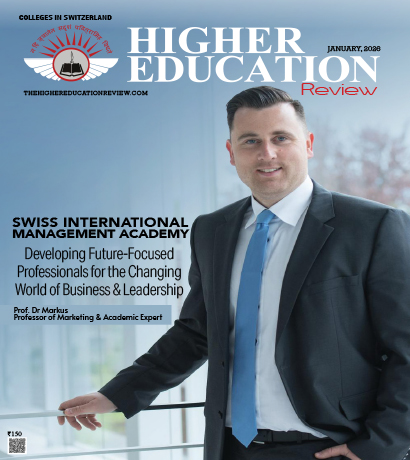How Malaysia is Implementing AI in its Higher Education

In the era of technological advancements taking place at a breakneck pace, universities in the country of Malaysia are pioneering a transformative approach to higher education. By weaving emerging technologies including VR/AR, AI, cybersecurity, drone technology as well as sustainability into their degree programs, Malaysian Universities are looking forward to equip students with knowledge coupled with skills necessary for the future. This strategic update to the curriculum is both a robust response to the changing demands of the international job market as well as a nod to the significance of staying current with technological trends.
The integration of cutting-edge technologies into academic programs is a broader initiative for not just revolutionizing teaching methods, but also enhancing learning outcomes and ultimately bridging gaps in education. Also, universities are fostering an environment where faculty involvement as well as sustainable integration of Artificial Intelligence & other technologies becomes a cornerstone of higher education, beyond merely updating syllabuses. This holistic approach makes sure that both students as well as the educators are fluent in the language of tomorrow’s technology.
Administrative Support
Colleges & universities are streamlining their administrative processes by leveraging AI tools for powering student record systems, scheduling, transportation, IT, budgeting & more. These tools are implemented for interpreting data on admission, recruitment, as well as retention efforts for predicting if students are in danger in either failing or dropping a course. Therefore, as a consequence, the staff are alerted of potential problems for supporting & addressing a student’s problems even before they happen.
Some of the top universities in Malaysia offering AI courses include University Malaysia of Computer Science and Engineering (UniMY), UCSI University, University Pendidikan Sultan Idris (UPSI), Universiti Putra Malaysia (UPM), and others.
“Students want to have some sort of contact through their journey of data collection, application through to registration. It is relatively easy to send an email every few days, based on templates that are pre-loaded and scheduled for certain times,” says Professor Graham Kendall, former CEO/Provost of the University of Nottingham Malaysia.
Personalized teaching and learning
Teaching & learning AI tools such as virtual teaching assistants & virtual tours are implemented for further personalizing the education experience of students. These virtual learning experiences provided by universities as well as colleges are available 24/7 & allow students with different requirements the ability for receiving information at their own personalized pace. Colleges are able to stay adaptive & focused on their students by implementing this new technology.
On the teaching front, educators as well as professors have started to implement AI tools to write code, resolve accessibility issues, generate content, reconfigure writing processes & detect plagiarism.
"Malaysia has a single Malaysian Qualification Framework (MQF) modeled on European standards that clarifies all academic and vocational education levels in the form of qualifications", says Akhil Shahani, Managing Director, The Shahani Group.
Universiti Malaya offers Master of Artificial Intelligence programme which provides opportunities for degree holders in Computer Science/Information Technology.
Research Support
Higher Education Institutions are leveraging AI in research by implementing tools for sorting via large sets & amounts of data for identifying patterns, building models, recommending relevant articles and preparing manuscripts for publication.
By using this process, both teachers as well as education administrators are equipped for making better & more informed decisions when it comes to their assessment, lesson planning, & even professional development. Also, these reports could be highly effective in practicing positive changes for the safety, security as well as cybersecurity of people who are either working or attending a particular institution.
“The Higher Education Ministry (MOHE) will look into the establishment of a dedicated polytechnic for the country’s first Intelligence (AI) programme,” said Deputy Prime Minister and Minister of Rural and Regional Development The Honourable Dato' Seri Dr. Ahmad Zahid Hamidi during his visit to the University of Tsukuba in Ibaraki, Japan, recently.
“Discussions on this were held with Polytechnic and Community College Education Department director-general Mohd Zahari Ismail,” he added.
“Universiti Teknikal Malaysia Melaka (UTeM), representing the Malaysian Technical University Network (MTUN), along with Universiti Teknologi Malaysia (UTM), which is developing an AI Studies Centre in Malaysia, will be involved in this collaboration,” he said in a statement.
The way forward
Concerns remain despite the promise & potential of integrating Artificial Intelligence into education. Some of the challenges that need to be addressed include the reduction of social & emotional skills, biases in AI data sets, & commercialization of AI tools. The adoption of Artificial Intelligence platforms in 209 educational institutions in 156 countries depicts the widespread recognition and acceptance of Artificial Intelligence’s benefits. However, it also highlights the need and urgency to find pragmatic solutions to its drawbacks.
By updating their degree programs to include Artificial Intelligence & other emerging technologies, the local universities in Malaysia are not only preparing students for future careers but they are also actively participating in a global dialogue on the responsible & impactful use of technology in education. These institutions are laying the groundwork for a future where education is more dynamic, and inclusive and attuned to requirements of the digital age by encouraging student engagement in AI-related projects, faculty research and professional development.
Although the journey of integrating Artificial Intelligence and other emerging technologies into higher education is challenging it is rewarding also. As Malaysian universities navigate this landscape, they are setting a precedent for how institutions worldwide can adapt to and embrace the technological revolution. The ultimate goal is clear: to empower students with the skills and knowledge they need to thrive in an increasingly complex world, ensuring that education remains a powerful tool for personal and societal transformation.

